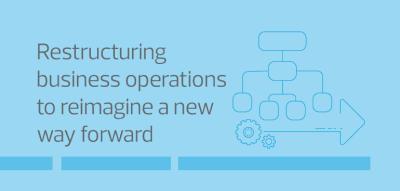The intricacies of restructuring
We were approached by an Italian multinational company specialising in high pressure hoses and fittings. They needed us to assist them with the restructure of their two South African entities. Whilst the South African entities were ultimately owned by the same Italian shareholder, each company in South Africa was owned by a different intermediary Italian company.
The brief to RSM was to merge the two South African entities, in a tax efficient way, taking into consideration the legal nature of the merger, and provide extensive advice regarding the operational merger of the employees from each South African entity. Ultimately, the client required one operating entity in South Africa which was strategically and culturally aligned, and which delivered an efficient operating entity.
One of the complexities to the transaction was that the intermediate Italian companies underwent a statutory merger in Italy which had very strict timeline deliverables in terms of the merger in South Africa.
The first consideration was which South African entity to merge, and which South African entity would be wound up. This involved a detailed analysis of the financial statements and management accounts of both South African entities. Part of the analysis was to consider the corporate restructure rules under the Income Tax Act, and whether the merger of the South African entities could be achieved on a tax neutral basis, and within the timeframes required by the Italian multinational company. A position paper was submitted to the board of the Italian multinational company in order to consider the various options and the pros and cons. Once the structure of the transaction had been determined, as approved by the board of the multinational Italian company, the legal framework for the merger of the two South African entities was finalised. RSM finalised the Sale and Purchase Agreements as well, including the mechanism for payment being an allotment of shares in the merged entity. The transaction included the transfer of stock, fixed assets including immovable property, trade receivables, cash, and trade payables including shareholder loans. As part of the transaction, the employees were transferred into the merged entity.
The second consideration dealt with the different bases of accounting, and the software packages for the accounting and payroll. This necessitated a detailed analysis of the software, and the detailed integration of the financial records onto one platform using the same software. RSM was involved in the mapping and integration of the financial records, as well as preparing the day one balance sheet of the merged entity.
A third consideration, and one which required the significant input from RSM, involved the integration of the employees in the merged entity. The employees from the one entity had different terms and conditions of employment, different employee benefits, work hours and leave provisions. The employees from the other entity had certain additional employee benefits including a provident fund and medical aid. The employees from the one entity were traditional blue-collar workers whilst employees from the other entity were white-collar workers. As such, RSM prepared a detailed comparison of the terms and conditions of employment, and prepared new letters of appointment for all employees, with standardised terms and conditions across all levels of employment, and which necessitated consultations with each employee and the trade union. As part of the project, RSM facilitated the transfer of the provident fund as well as drafted changes to the rules of the provident fund to allow a phased contribution by certain employees. A lot of time and energy was focused on post-merger integration and cultural alignment between the employees of both South African entities, in order to ensure a coherent and happy workforce into the future.
It took approximately nine months to complete the restructure of the two South African entities in South Africa. As part of the restructure, RSM attended to the winding up of the one South African entity, within very strict timelines.
Senior management from the multinational Italian company travelled to South Africa to oversee the final stages of the integration between the two South African entities and were very pleased with the multidisciplinary service offering provided by RSM, and the fact that all of their requirements could be serviced by RSM, ranging from tax, legal, accounting, company secretarial, human resources and industrial relations.




